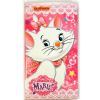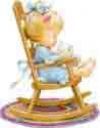|
ESL Forum:
Techniques and methods
in Language Teaching
Games, activities
and teaching ideas
Grammar and
Linguistics
Teaching material
Concerning
worksheets
Concerning
powerpoints
Concerning online
exercises
Make suggestions,
report errors
Ask for help
Message board
|
ESL forum >
Ask for help > uncountables
uncountables
|

Vale A.

|
uncountables
|
|
Hello dear colleagues!
I �d like to ask your opinion in a matter that really puzzles me, I found the following definition:
Uncountable nouns refer to things that we see as a unit, not made up of separate things or parts.
And, for instance, sand - which is uncountable - is made of small loose grains of worn or disintegrated rock (that is separate things or parts, right???). That means this definition doesn �t go for this word (sand)!
Lots of thanks for your help! |
23 Jan 2012
|
|
|
|

yanogator

|
|
It �s your definition of uncountable that isn �t exactly right. Uncountable nouns refer to things that we consider as a unit or a mass. Sand is made of individual grains. Milk is made of drops. Bread comes in loaves and slices.
Sand is uncountable. Grains of sand are countable.
Milk is uncountable. Drops of milk are countable.
Bread is uncountable. Slices of bread are countable.
I hope this helps you.
Bruce |
23 Jan 2012
|
|
|

Olindalima ( F )

|
The grains are countable, the sand is not. You don �t say the seaside was very nice because it had many beautiful sands.
The same way you can count money, but not the word, itself. You don �t say something costs five moneys. You count currency, dollars, euros, pounds etc, but don �t use the word money in a plural form.
However, I think in some cases you can use sands in a plural. For example, Portuguese seasides have pearled, soft sands. I think ( ??? )
Hope this can help
Linda
|
23 Jan 2012
|
|
|

yanogator

|
|
Yes, Linda, you could say "sands" there, but "sand" would be more common.
Bruce |
23 Jan 2012
|
|
|

yanogator

|
|
Yes, Linda, you could say "sands" there, but "sand" would be more common.
Bruce |
23 Jan 2012
|
|
|

Olindalima ( F )

|
Thanks Bruce, I appreciate every bit of help, any tip. 
Linda
|
23 Jan 2012
|
|
|

moravc

|
Well, we usually say that uncountable nouns are liquid:
(water, juice, milk, cream, tea, wine, oil, vinegar, soup, shampoo, petrol, blood...) or
loose / powderish substances (we can sprinkle them):
(flour, sugar, salt, pepper, rice, sand, snow, cake...)
or creamy substances:
(whipped cream, butter, porridge, yoghurt, suntan cream, creme mouse, shoe polish, toothpaste, glue...)
or solid material (the statue is made of ... rock/ice/wood):
rock, ice, wood, copper, iron, paper, plastic, glass, soap, ...
All uncountable nouns of such origin can be tranformed into countable - just add the container, quantity (kg, litre...) - a cup of, a heap of, a glass of..., a pot of..., a piece of...
There are also many abstract nouns which are uncountable - knowledge, success, friendship, information, fun, experience, happines, addiction, safety, violence, bribery, abuse, investigation, employment, affection... (I call them "untouchable".)
|
24 Jan 2012
|
|
|

Vale A.

|
|
Dear Bruce, Linda, moravc - my deepest thanks to all of you!!! |
24 Jan 2012
|
|
|